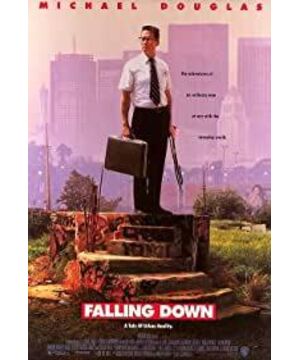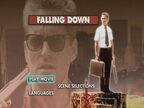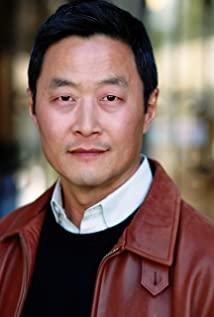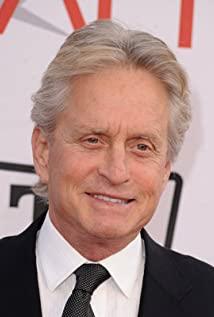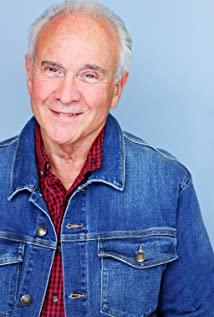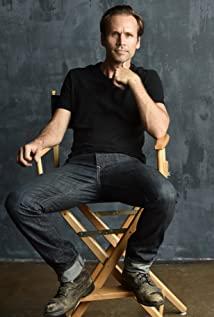At the beginning of the film, John Doe, played by Douglas, is trapped in a traffic jam in a street in a slum area in California, in the hot spring and summer season. In this scene, the camera first slowly looked around the environment outside the protagonist’s car: the girl holding the doll, the woman wearing lipstick, the noisy young black man, the middle-aged man talking loudly on the phone, and paused for 2 seconds at the back of the protagonist. Back to the front of the protagonist, and then "impatiently" looking around the same circle environment with the subjective lens of the protagonist, and finally looking around the same circle environment "panicly" with the subjective close-up lens, the cycle stopped abruptly. This is the most wonderful example shot of inner anxiety I have ever seen. You noticed that I replaced the neutral words "faster" and "high speed" with "impatient" and "fear", because of this Emotions are ready to come out in the subjective lens, no doubt. Also noteworthy in the opening scene is an episode about license plates. Corresponding to the words Financial Freedom, Be Died for Our Sins and Eat Shit, we will see later, the protagonist’s license plate "D-Fens". D-Fens is undoubtedly a metaphor for Defense, what is it to defend? Then we understood.
The protagonist insists on going to see her daughter because it is her birthday. Because of his ex-wife's stern refusal, the protagonist feels that his love for his daughter is hindered, and it is natural that he has to resist this kind of hindrance. This reaction force is the source of his "defense" power. He wants to defend his affection for his daughter, and he must defend his ability to acquire such affection.
Of course, the film will not be a simple and ethical film. During our protagonist's journey home, he encountered a series of characters and events. The first is a Korean owner of a grocery store. The protagonist is asked to pay 85 cents for a can of Coca-Cola, and he runs away. He believes that 85 cents exceeds the use value of the goods, especially consumers who are mostly people under the management of the US government who "donate you South Korea how much money you don't know." As an American citizen, he felt deceived and raped. This story secretly echoes the financial freedom at the beginning. The free economy opens up markets to the world, attracting businesses who inevitably squeeze profits.
After punishing a Korean grocery store with a stick, the protagonist then came to a Latin American territory. Two young Latin Americans surrounded him and demanded money from him on charges of trespassing in the restricted area, but were driven away by him with a big stick. Whether this story alludes to the U.S.'s big stick policy against Latin America in the early 1920s, I'm not sure. Experts will come to express their thoughts. After all, they are all related to border issues, ha.
The young Latin Americans drove their cars and shot guns to plan street revenge, but unfortunately they caught fire and were shot and killed by the protagonist and snatched a pack of heavy weapons. Then the protagonist goes to a fast food restaurant to ask for a breakfast, and with the help of the threat of force, he buys a dull hamburger. The protagonist went violently again, pointing to the advertising poster that was overwhelmed by PS and asked: Who agrees that this picture has serious problems? This story secretly echoes the Eat Shit at the beginning.
After the fast food restaurant incident, the police took action. And stopped in a military clothing store. This story is also very interesting. It is said that the shopkeeper had a very good attitude towards our protagonist at first, but he has been cursing two gay customers. When the police asked, they also covered the protagonist. Later we discovered that the shopkeeper was a 100% neo-Nazi. Anti-comrade, racism, and his right-wing thinking made the protagonist run away again and was killed in rage. This episode echoes Be Died for Our Sins. Note that the Nazi shopkeeper flattered the protagonist and said that we are the same kind of people. The protagonist reprimanded, we are not the same kind of people, I am an American, and you are just a lunatic. Until this time, the protagonist has always firmly believed that everything he did is right and what an American citizen should do.
What did he do? He can’t understand the construction team that just destroys the road and affects people's passing in order to defraud the budget. He can't understand the proud golfer who occupies the entire golf course for private fun. He can't understand the plastic surgeon who owns a big villa in a slum. , He couldn't understand too many things, so he used force to punish them one by one. When he faced the surgeon’s security couple, he sadly said that I was unemployed and the company kicked me away. I have too much education, but too little technology. I'm a person who can't support myself, and I can't even pay for my daughter's support. This shot is too sad. Our protagonist, dressed in white-collar clothes, is as one with the blacks and Latins in the slums. They are all economically unviable people. When the black young man who was shouting injustice hoarsely in front of the building was taken away by the police and told the protagonist Don't forget me in the car, the protagonist nodded slightly. This sentence is actually spoken to the US government.
There is a reason why the background of the film should be selected in the slums of California. Relying on Hollywood, this is a land of no ownership. No one cares whether it is convenient for the black Latino to cross the road, whether the diet is healthy, and even the protagonist’s wife, an Italian, is called Hysterical by the police and ignored. The protagonist, a white, middle-aged man, once a small middle class (note that these three elements are the power centers generally recognized in Western society), after falling down, became a different kind of urban hero.
After all, what is our protagonist defending?
It is the founding creed of the United States,
equality, justice, and the slogan of by the people, for the people.
Equality is the key word. Regardless of black and white, rich or poor, we should all have the right to love and be loved. Economically viable should not be an excuse. He doesn't smoke, drink, or beat his wife. Why is he considered violent and sick?
In addition to this level of connotation, this film also has another level of criticism, which is the story that happened with our second protagonist, Planters Police. Because I am leaving my job, because I have never been shot, because I have a naive and wayward wife, I was dismissed by my colleagues, and even scolded by my boss: I don’t like you. If you are afraid of being shot, you will stay away from your broken office forever. Be behind the table! And the one who always cared about human lives, cared about the case, and finally solved the case was Planders, and the clamoring police did nothing. The hypocrisy behind the well-dressed is vivid. Plantes and the protagonist are a perfect contrast. They are both middle-aged and have a troublesome wife. Both are frustrated, but both value family affection. Because of this, at the end of the film, Planders would look at the protagonist who was shot and fell into the sea with a sad look. Although he told the protagonist, they cheat us all, including the fish, but you cannot kill people in the name of it (to the effect), although the law tells us that criminal acts must be repaid, but he must also understand in his heart, we're all fucked.
Yes, we're all fucked.
PS. I am surprised that this film has only been watched by more than 900 people. Finally, please allow me to bow to joel schumacher. From lost boys to phone booth to falling down, my films are not popular or clamoring, but the quality is very high, ha.
View more about Falling Down reviews


